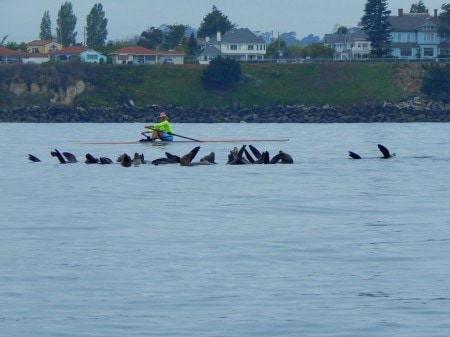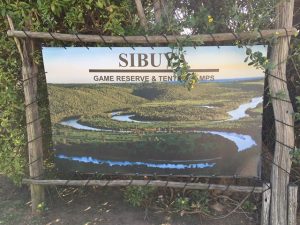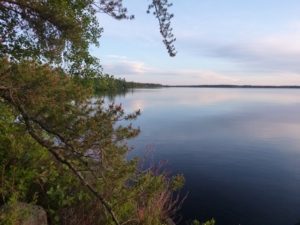
Jeltje and friends, Santa Cruz. Photo courtesy Tim Huebner
I was asked to be part of a panel discussion on the role of tourism in parks and protected areas. As the only business owner on the panel, I presented broad perspectives from the adventure travel industry, which is heavily reliant on beautiful, natural areas and can play a role in advancing conservation. But it got me thinking about my rowing travel company and to what extent I include rowing in parks and protected areas. What about rowing in general in relation to wild places?
The characteristics of the water and surrounding environment are critical to a fantastic experience when we travel to row in a new place. Typically, rowing clubs are in urban areas, although the banks of rivers, lakes and reservoirs can be lovely green spaces. Many of these built-up areas can be spectacular – for example, it is always a thrill for me to row past Windsor Castle when on our Classic River Thames trip.

The winding Kariega River to Sibuya (photo courtesy Suzie Jones).
Rowing through wild, undeveloped areas, where forests might line the banks or all that is visible is marshland is less common. Travelling by rowing shell through parks and other protected natural areas is even more rare. But so highly valued. I have terrific memories of Elkhorn Slough near Santa Cruz, with barking sea lions, seals, otters and myriad waterfowl. It is a thrill on the Western Cape portion of our South Africa Rowing Safari to row by Boulders Beach, protected for the African penguin. On the Eastern Cape portion, we row into Sibuya Game Reserve, an absolute highlight. Being able to trailer boats or use more portable equipment such as SUP rowers opens up many more possibilities. As I plan trips for new destinations I will now more consciously think about selecting rowing locations that feature parks and protected areas, and also how to give back to conservation in some way. It is a privilege to row in such special places.

Ready to row in Whiteshell Provincial Park, Manitoba, Canada
But what about the broader rowing community? World Rowing has recognized the importance of clean water for our sport, and for the planet. Initiatives such as the Kafue River & Rowing Centre, in collaboration with WWF, are commendable. Is there much interest amongst rowers not just for the quality of the water that we row on, but also for the full environment that we enjoy our sport in? There are so many causes to support in our overfilled lives, that parks and protected areas are not a priority for rowers. However, small actions are valuable, such as a donation to a local conservation organization, or volunteering for a riverbank clean-up day. Even better is making the effort to travel to row in a special wild place, spending your tourist money in the local community and sharing the experience with your friends and on social media. Expand the mind, body and spirit benefits of rowing to recognize, appreciate and support parks and protected areas.

